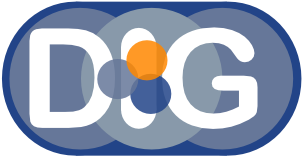6.898 - Linked Data Ventures
Syllabus
Fall 2010
Room 4-149 ; Lecture: T 4-7 , Lab: R 4-6
Units: 3-2-7, Graduate-H
Faculty and Staff:
CSAIL: Tim Berners-Lee, Lalana Kagal, K. Krasnow Waterman
Sloan: Reed Sturtevant, Katie Rae
TA: Ian Jacobi (Office Hours: M/R 3-4PM (tentative), 32-G531)
Course Website:
http://dig.csail.mit.edu/2010/Courses/6.898/
Stellar Site:
https://stellar.mit.edu/S/course/6/fa10/6.898/index.html
Course Description:
"The Semantic Web is not a separate Web but an extension of the current one, in which information is given well-defined meaning, better enabling computers and people to work in cooperation." Linked Data is the use of all that information in a manner that essentially treats the entire web as one virtual database, allowing data to be pulled and manipulated from multiple sites as a single query and, beyond that, allows the sites queried to point to other locations that might have useful information.
Linked Data Ventures is a graduate-level class that combines traditional academics with practitioner perspectives and practical hands-on experience, to empower students to launch new ventures using this technology. From the instructor team, students will learn the technical components that are needed to produce Linked Data offerings, will learn business skills fundamental to growing and sustaining a venture. Weekly guest lecturers will provide insights into how they use the technology in their business and their experience launching a venture. This is a unique course in which teaching is shared between EECS and the MIT Entrepreneurship Center and learning is a cooperative effort between EECS and Sloan students. A team-based project will culminate in sustainable prototypes that could be freeware or have the potential to be commercialized in the future, and will serve as a good launching point for entering into the MIT 100k competition. At the end of the semester, each project team will do a business presentation in front of the whole class and a panel of outside experts and judges, as well as a technical presentation as the conclusion of the lab.
Learning Objectives
After taking 6.898, students should:
- Be knowledgeable about linked data technology: able to describe it and use it effectively
- Be knowledgeable about the markets in which Linked Data products exist, and those where there is opportunity
- Understand how to judge the viability of an idea; establish a sustainable business model
- Create viable prototypes that involve and utilize linked data
- Understand how to work effectively in cross-functional teams.
- Begin to build a valuable network for continued growth in this area.
Course Format:
This 12-unit course will be highly action-oriented and interactive, with a team-based project due at the end of the semester. The class meets twice a week; on Tuesdays for 3 hours in which the basic model is a lecture on a technical or business topic; a hands-on activity to exercise the topic and a guest speaker and on Thursdays for 2 hours of lab. The course content will be split into two parts:
Ramp-Up: The first part of the semester will be dedicated to immersing students in the fundamentals of Semantic Web/Linked Data concepts, technologies, and businesses currently using them, in order to be able to form a project idea that is achievable during the semester and potentially competitive in the market after the semester. During this part of the semester, students are expected to work in "homework teams" and there will be three types of homework: (1) after each class, each student must submit a one paragraph idea for a project to the "idea bank" as a means for collective brainstorming; (2) there will be a rotating assignment in which a homework team is responsible for preparing a "backgrounder" for a guest lecturer (and being prepared to ask questions during the guest's Q&A time); (3) traditional homework assignments related to the week's lecture topic (lab time will typically be structured around this). At the end of this phase, students will pitch and select project ideas and form "project teams" (each team should ideally be 4 people and must contain at least 1 Sloan student and 2 EECS students).
Projects: After the ramp-up phase, the class will change orientation to more business-related topics and overviews of advanced technical topics. The lectures during this phase will cover business fundamentals for starting a project (project plan and business model) and a variety of advanced technical and business topics. Homework during this half of the semester is: (1) continuation of the rotating assigment to prepare a "backgrounder" for the guest lecturers; (2) producing the team's prototype and pitch which will be evaluated at the end of the semester (possibly with milestone check-ins during this period). The recitation/lab during this phase will be dedicated to prototype development and specific questions that may arise.
Grading:
Class grades will be assigned on the basis of homework, project performance, and class participation, as follows:
- 65% final project and milestones
- 25% labs/homework
- 10% class participation
Late Homework Policy:
Homework and other assignments are expected to be turned in before 4:00PM on the date they are due. This includes the final project, which must be turned in prior to the Team Pitch and Demo. Late homework will be accepted at the discretion of the instructors.
Collaboration Policy
Students are expected and encouraged to work together in groups both for completing homework in the first half of the class, and on the project in the second half. However, we expect you to turn in your own work and acknowledge your team on all assignments except those for which a single group submission is expected (such as the group project and weekly backgrounders).



